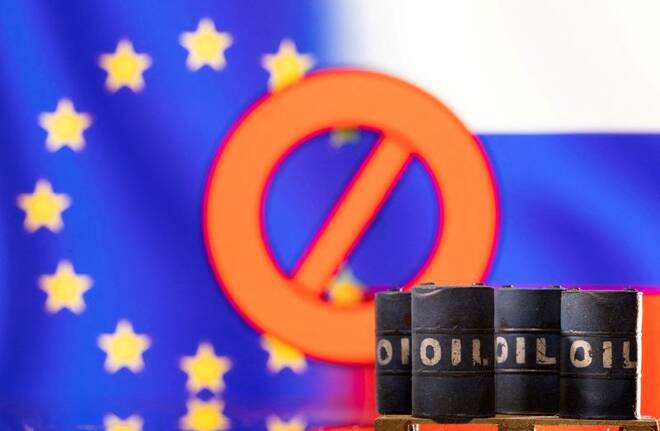Advertisement
Advertisement
Slovakia says hardest hit by Russia oil sanctions, expects solidarity
By:
PRAGUE (Reuters) -Slovakia said on Friday it would be hardest hit by European Union sanctions on Russian oil and it expected solidarity from Brussels to mitigate the impact.
PRAGUE (Reuters) -Slovakia said on Friday it would be hardest hit by European Union sanctions on Russian oil and it expected solidarity from Brussels to mitigate the impact.
The economy ministry said Slovakia had sought a three-year derogation on trade in piped Russian oil and oil products, but was unsuccessful as tough sanctions were approved with the aim of hitting Russian revenues following its invasion of Ukraine.
“The embargo … was approved in a version with direct impact on the market for motor fuels and their production in Slovakia,” the ministry said in a statement.
“Within the declared solidarity we expect individual access to resources from REPower EU,” it said, referring to the EU’s plan to end dependence on Russian fossil fuels and tackle the climate crisis.
The ministry said the final version of the sanctions meant Slovakia could keep importing crude from Russia via the Druzhba pipeline, but after eight months this could only be used for production for the domestic market and oil product exports to the neighbouring Czech Republic, which would be possible for further 10 months.
Slovakia’s only domestic refiner, Slovnaft, runs on Russian oil.
It said on Thursday the sanctions would have a severe impact on its production and create market shortages in fuels in the region as it could not make technological changes in time.
The 124,000 barrel-per-day refinery, owned by Hungary’s MOL, is based near Slovakia’s borders with Hungary and Austria, and also has a product pipeline to the Czech Republic.
It exports the majority of its output, including diesel, petrol, jet fuel, sulphur and plastics to a number of central and west European countries and said forced a reduction in capacity may also threaten supplies to the domestic market.
(Reporting by Robert Muller and Jan LopatkaEditing by Toby Chopra and Mark Potter)
About the Author
Reuterscontributor
Reuters, the news and media division of Thomson Reuters, is the world’s largest international multimedia news provider reaching more than one billion people every day. Reuters provides trusted business, financial, national, and international news to professionals via Thomson Reuters desktops, the world's media organizations, and directly to consumers at Reuters.com and via Reuters TV. Learn more about Thomson Reuters products:
Did you find this article useful?
Latest news and analysis
Advertisement
